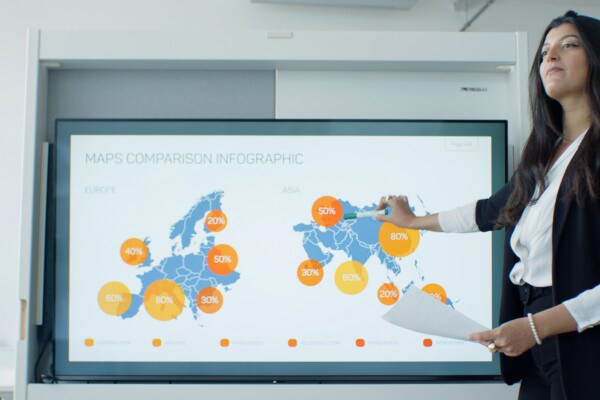Much effort has been made, and is being made, to improve accessibility and inclusivity for people with disabilities and health challenges within the workplace. Yet, this was always going to be a long journey of learning and understanding, and there’s still a long way to go and much to do. It’s a truth that too many people still suffer discrimination, or are excluded from the workplace unnecessarily. And in turn, any business that attempts to screen out people with disabilities thereby automatically diminishes any Social Value their business works to create.
The term “disabilities” covers a huge spectrum, with some perhaps being easy to recognise, but many others being hidden and not obvious – so unless people feel they are in an open, accepting and inclusive work environment, they’re not going to take the risk of opening up and making themselves vulnerable through fear of being stigmatised or judged. That fear in turn makes it harder to secure new roles, or even to hang on to their existing role, as they try harder and harder to hide or mask their hidden disabilities, with the resulting anxiety negatively impacting quality of life and their overall mental health.
Four years ago, I was diagnosed with Meniere’s disease, which is a disorder of the inner ear and is currently not curable – even just writing that feels a powerful and rather depressing statement! Around one in 1,000 people develop Meniere’s in the UK, with symptoms usually starting in people aged between 40 and 60.
Symptoms tend to come on as “episodes” or “attacks”, and can include:
- vertigo, with attacks lasting anywhere from a few minutes to 24hrs, and can include severe bouts of nausea and vomiting;
- loss of hearing in the affected ear;
- tinnitus, or the sensation of ringing, in the affected ear.
The vertigo attacks are the most debilitating symptoms. If you’re lucky, (I am), you get to recognise the symptoms ahead of an attack, which allows some time to prepare. I usually get 10-15mins notice; however, the worst affected can get no notice at all, and suffer what is typically referred to as “drop attacks”.
As I said, I’m lucky as I get warning signs, so can prepare, but with only 10-15mins notice, that’s not a lot of time. Now just think how this could impact you at work:
- If on public transport you may not be able to get off at your stop, so can end up miles away from your intended destination, and be late for work or a customer meeting. I have ended up being wheelchaired off a plane before. And who wants to sit next to someone vomiting!
- In a customer meeting, how do you explain to a customer you have to go, or suddenly drop off an important call.
- Public speaking / presenting – how will I be perceived if I suddenly have to walk off stage mid presentation.
- And of course, driving – for those who suffer drop attacks, if they have to drive for work they can say goodbye to their driving licence, and career!
During an interview for a new role, upon hearing the above, how many employers can say the above would not have an impact on their decision-making process? Or if an existing employee was diagnosed with Meniere’s, that it wouldn’t impact on the employee’s job prospects?
It has taken me a while to accept and talk openly about my hidden health challenges, yet I can say, hand on heart that my experience at Accordant has been one of inclusivity and acceptance. Despite being aware of my condition, the Exec Team invited me to join them as a Director, eventually offering me promotion to Managing Director. I consider myself fortunate to be part of a fantastic team that doesn’t pay lip service to Social Value – they genuinely believe in the Social Value impact a business can have. It’s time for more organisations to start thinking this way, and joining the journey to inclusion rather than exclusion.




